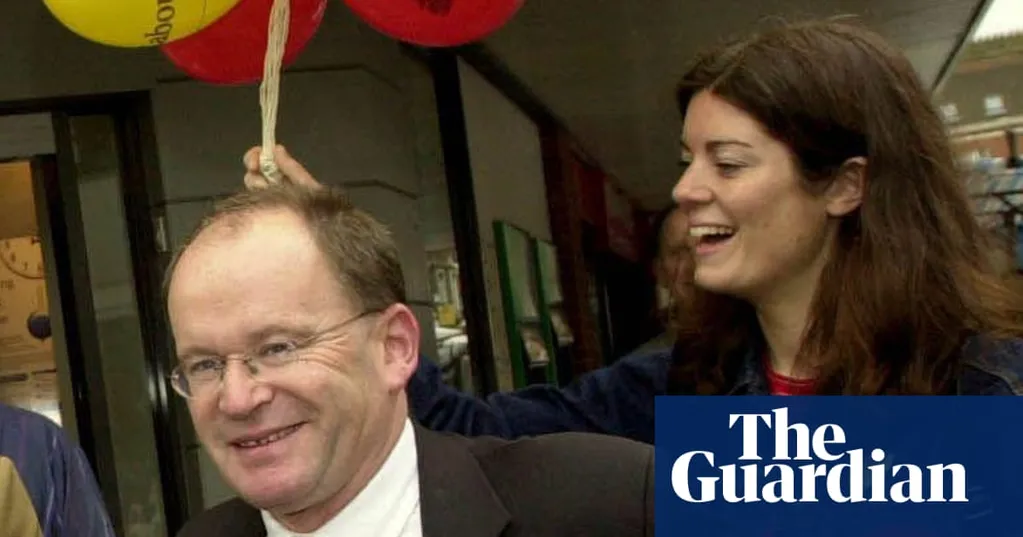Iain Coleman, the former MP for Hammersmith and Fulham, who has died aged 67, was renowned within his west London constituency for a policy of free social care provision at home, something he had fought to introduce in the area during his leadership of the local council in the 1990s before he was elected to parliament in the Labour landslide of 1997.
Through a cruel irony, the series of strokes that curtailed his active political career meant that he himself would latterly become a major beneficiary of this very scheme.
His socialist politics were fired by an inherent social compassion and a conscientious concern for those - in particular, homeless people - he thought had been left behind by society, and he dedicated his working life to attempting to use political power in order to improve the lives of others.
Coleman's first job on leaving school had been as a care worker in a care home in Kent, the county where he was raised. Subsequently he was employed as a local government officer in the London boroughs of Ealing (from 1986) and then Islington (from 1990), contemporaneously with his first 13 years as an elected councillor in Hammersmith and Fulham. After an initial succession of strokes in 2004 he retired from parliament at the general election the following year, but returned to office as a councillor in the borough from 2010 until 2014.
Coleman was widely recognised as a highly skilful political strategist. He worked hard, was an effective council leader (from 1991 until 1996) and did a great deal to advance the Labour party cause in the highly marginal borough. He was what is known in political circles, usually admiringly, as an operator - someone who could make things happen through manoeuvring behind the scenes. When first elected as a councillor in 1986, he won the two-member Avonmore ward from the Conservatives with Sally Powell, who became his wife in 1996.
They formed a powerful political duo on the council, where Coleman became the leader, and mayor in 1996-97, while Powell chaired the environment committee and then chair of planning. She later became a member of Labour's national executive.
Coleman was born in Hammersmith, the second son and middle of three children of Pamela (nee Betts) and Ronald Coleman. His father was a businessman, later the chief executive of Ann Summers, and both parents were then Conservative supporters. The family lived in Tunbridge Wells, Kent, and Iain and his elder brother, Neale, were both educated at Tonbridge school. Iain credited the history teacher there for his introduction to socialism. Neale also entered Labour politics as an elected Westminster city councillor, and as a policy adviser both to Ken Livingstone, when mayor of London, and the former Labour leader Jeremy Corbyn. Their mother switched her allegiance to Labour, was elected as a councillor in Barnet, north London, in 1990 and served as mayor of Barnet in 1997.
Iain did not do well in the classroom and left school before studying for A-levels. It was only as an adult, when his six-year-old son received a diagnosis of dyspraxia, which affects co-ordination skills, that he learned that he also suffered from the same condition. It did provide an explanation of why he had taken the driving test 45 times before eventually securing a pass.
On the crest of the wave that swept Tony Blair into power, Coleman won the newly created seat of Hammersmith and Fulham with a majority of 3,842. In a maiden speech on local government finance, he sought to explain the socially divergent nature of his constituency, telling MPs that the borough he had so recently led suffered great poverty. The glitzy wine bars and expensive restaurants of the borough were balanced by the fact that 35% of households were dependent on benefit, 53% of primary schoolchildren were entitled to free school meals - double the national average - and the death rate of men under the age of 60 was 60% higher than average.
Coleman was a diligent MP and a powerful voice for his constituency. The other principle issues he espoused were the Palestinian cause and the future of Ireland. He had a close circle of friends in Labour politics, but, perhaps predictably, given his strong convictions, did not see eye to eye with everyone. He had a strong sense of fun, enjoyed cooking and was a passionately enthusiastic supporter of Arsenal FC.
In 2001, he narrowly held his seat, by 2,015 votes. After leaving parliament, he recovered from his first strokes but after a further incidence and a total of 20 strokes succumbed to early onset dementia. His wife wrote a powerful letter, published in the Guardian shortly before last year's general election, arguing for the inclusion of free social care to be included in the party's manifesto and enacted by every local authority.
Coleman is survived by Sally and their son, Jack, and by his brother, Neale, and sister, Helen.
